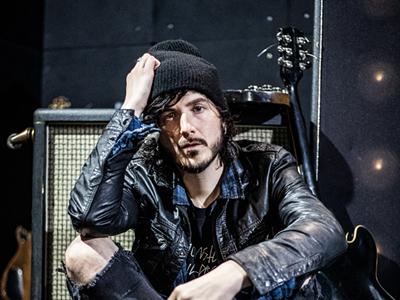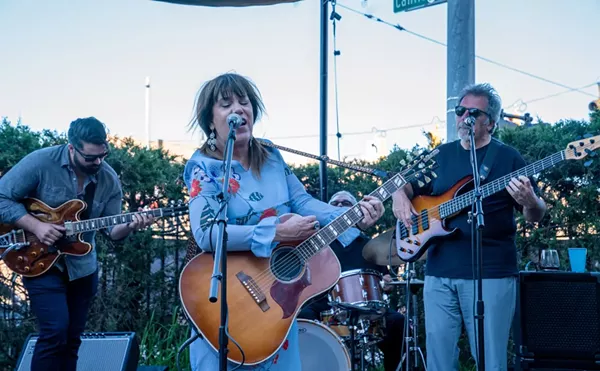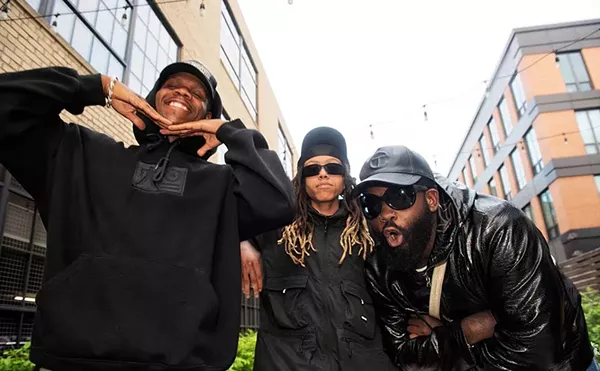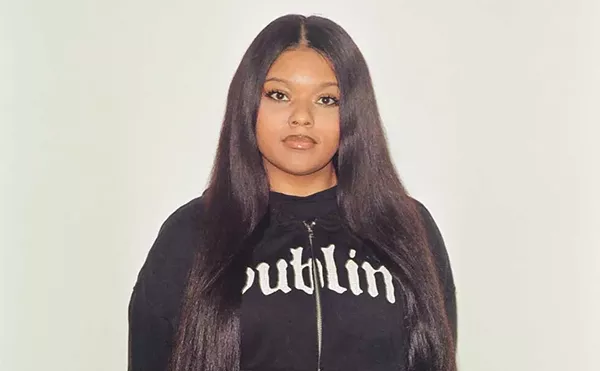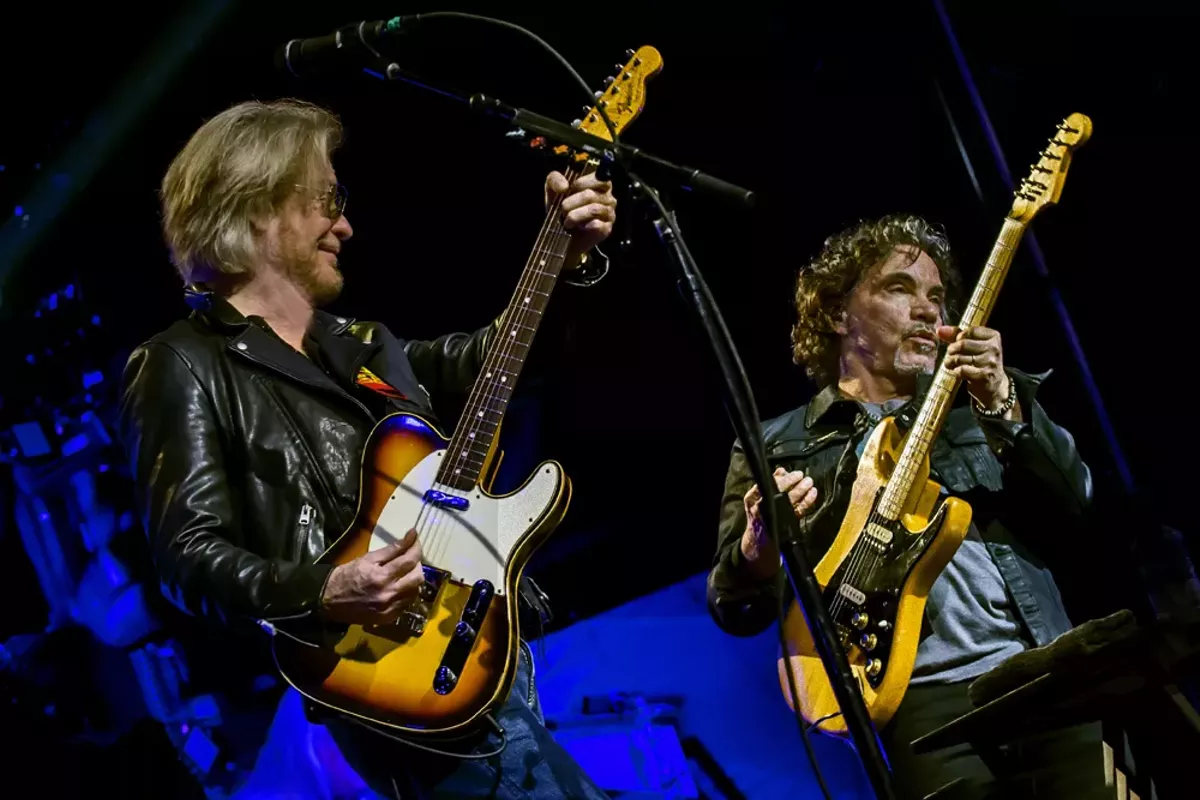

Audio By Carbonatix
[
{
"name": "GPT - Leaderboard - Inline - Content",
"component": "35519556",
"insertPoint": "5th",
"startingPoint": "3",
"requiredCountToDisplay": "3",
"maxInsertions": 100,
"adList": [
{
"adPreset": "LeaderboardInline"
}
]
}
]
There's no bigger mindfuck than preparing to interview Daryl Hall and it ends up being John Oates.
"I'll tell you what, you can just call me Daryl and I'll just pretend to answer for him," Oates says. Apparently, this happens a lot.
As attractive an offer as that might seem, Oates, 71, couldn't be more different than his much taller, more outspoken musical cohort who, together, serve as the best-selling pop duo of all time, a claim that neither Hall nor Oates seems to give two shits about.
"We're very different as people outside of music," he says. "We live very different lives."
Though the two no longer record together and live on opposite sides of the country, the blue-eyed soul duo have survived the following: pornographic facial hair trends, rumors that they are lovers, MTV, post-MTV, the '70s, the '80s, '80s nostalgia, '80s nostalgia fatigue, shoulder pads, being low-key adopted by the indie rock and hip-hop community, lavish spending, their underperforming 1972 debut Whole Oats, and a mid-aughts Christmas record, which is the last output the duo released together.
And yet, against all odds, Hall and Oates are cool. Like, actually, unironically, very cool. They have their own "Callin' Oates" hotline (719-26-OATES), where a caller can choose to hear a sample from one of the duo's many hits in case of an emergency. (But not a real emergency, of course. That would be stupid.) Hell, during our chat Oates cites Bruno Mars as being one of his favorite modern acts and by mere association or osmosis, Bruno Mars is now, in our book, somehow also very cool.
So how did two dudes with synthesizers rebound from the fate prescribed to so many from the era defined by excess and Aqua Net?
"Well, there's a number of things that happened. I think really it's a sum total of three major components," Oates says of the duo's pop culture renaissance. "One is the Rock and Roll Hall of Fame induction. The other one was the fact that Daryl had a TV show called Live From Daryl's House where he collaborated with a lot of younger artists who spread the word on us and talked about how influential we were to them, and then, of course, their fans kind of jumped on board. And lastly, the work I've done in Nashville with people like My Morning Jacket, and [played] Bonnaroo. All that stuff has come together and just little by little, we've aggregated this new audience."
Before their decade of chart-topping hits like "You Make My Dreams," "Rich Girl," "Maneater," "Sara Smile," "I Can't Go for That (No Can Do)," "Private Eyes," "She's Gone," and "Kiss On My List," and long before their rebirth, the pair had to survive a gang fight.
Described by Oates as being more of a "brotherhood" than a friendship these days, a lot has changed since 1967 when Hall famously met his future guitarist on a harrowing elevator ride after escaping gunfire during a high-school fraternity gang fight at the Delphi Ballroom in West Philadelphia, where both Hall and Oates were performing with rival bands, the Temptones and the Masters, respectively. Oates says while the elevator ride may have been a defining moment in pop music mythos, their meeting was inevitable.
"I think our paths would have crossed because we were both living in Philadelphia, and Philadelphia had a very small music scene, but the way it turned out was just a very unique situation," he says. "I had a band that had a song on the radio. He had a band that's on radio at the exact same time. We were both aware of each other. And then two of the guys in my band get drafted into Vietnam, that band fell apart. I joined his band as a guitar player and that band fell apart. And here we are."
The chemistry wasn't immediate, however. Oates recalls the first time they sat down to write a song to record it to tape, and it, as he put it, "wasn't great," which made him think that maybe the two should just hang out and not put a whole lot of stock into a musical partnership.
"I learned a lot of musicality from Daryl because he was more of a trained musician than I was," Oates says. "And he also is a piano player. So I learned as a guitar player, I learned how to play like a piano player. I learned how to adapt my guitar style to his piano. And I think vice versa, he learned mandolin and a lot of stuff he hadn't been exposed to."
Oates also points out that their success, a concept he describes as a coinflip between "prison or freedom," was far from immediate, and the two were three albums deep before they struck a hit. He credits this to having come up during a period when record companies "believed in developing careers" and not just hit songs, which Oates says is "very unlike the environment today's artists are facing." But more than the industry — which, despite being kind to Hall and Oates in terms of record sales and commercial success, was not always forgiving when it came to rock criticism — Oates credits the duo's longevity to its commitment to each other and the music.
"We committed ourselves individually and collectively to be musicians for the rest of our lives," he says. "We had no intention of doing anything else. So we didn't know how it was going to work out, of course. And it worked out beyond my wildest imagination and dreams. But nevertheless, we said, look, if this thing falls apart, there's always got to be a way we can still make music in some way, shape, or form. Who knows what that would've been — maybe just, you know, hole up in a room and just write songs. Maybe producing people. Maybe it would have been playing folk clubs. It wouldn't have mattered really."
"In terms of being considered wholesome, we're not that wholesome," he says. "But luckily we had our wild, wild times during a period when no one had cell phones and no one was documenting it."
Doors open at 8 p.m. on Friday, August 23 at Michigan Lottery Amphitheatre at Freedom Hill; 14900 Metro Pkwy., Sterling Heights; 586-268-9700; 313presents.com. Tickets are $39.50+.
Get our top picks for the best events in Detroit every Thursday morning. Sign up for our events newsletter.

